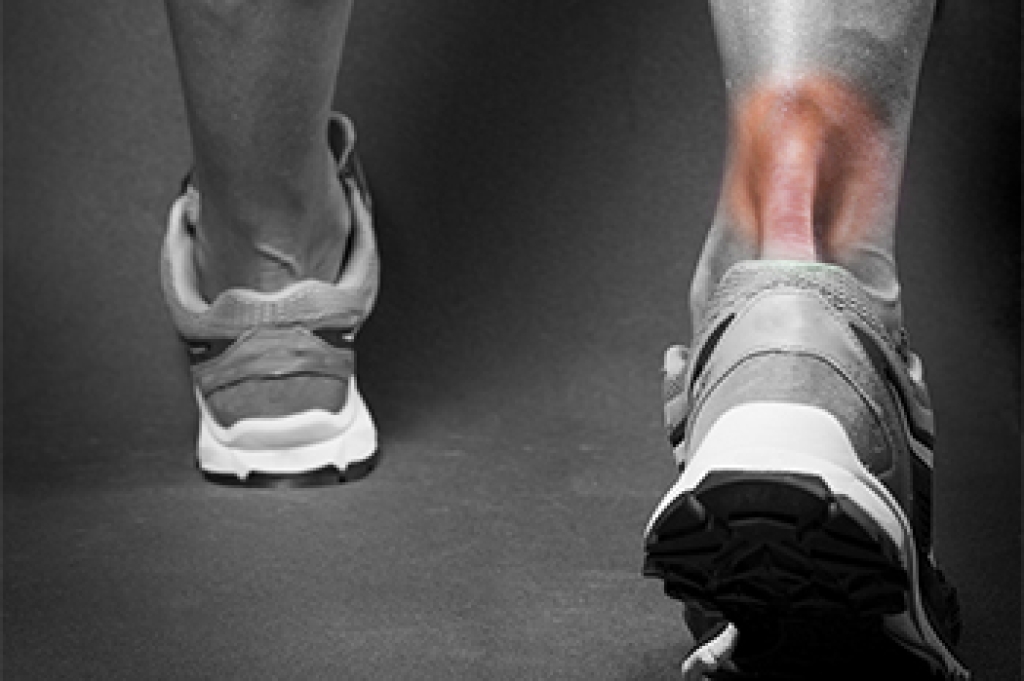
Achilles tendon pain is a modern day problem, especially for physically active people. Those who participate in soccer, volleyball, track and field events, and racquet sports are particularly susceptible to Achilles tendon injury. The Achilles tendon, one of the body’s longest tendons, is a tough band of tissue that connects the heel to the leg. Its main job is to allow you to walk, run, and push up onto your toes. For that reason, it is at risk of injury when playing sports that require those actions, even more so as you age. When the Achilles tendon becomes painful, it is usually because of repetitive action, causing inflammation. In the worst case scenarios, the Achilles tendon can tear partially or rupture, that is tear completely. This is usually the result of a trauma to the ankle, such as stopping too quickly or pivoting while changing direction. This will be immediately noticeable by severe pain and difficulty bearing weight. If you believe you have sustained an Achilles tendon injury, please consult a chiropodist for an exam, diagnosis, and course of treatment.
Achilles tendonitis is a common injury of the Achilles tendon, a band of fibrous tissue that runs along the back of the lower leg. The Achilles tendon can also rupture, making it impossible to lift the foot. If you are suffering from heel or calf pain, please consult with one of our chiropodists from West Toronto Foot & Ankle Clinic Inc. . Our chiropodist can help you maintain the health of your lower limbs and your mobility.
Causes of Achilles tendon injuries include:
- Repetitive stress or overuse
- Sudden increase in activity levels
- High impact injury
- Calf muscle tightness or weakness
- Altered foot biomechanics
- Heel bone spurs
- Underlying medical conditions that weaken the tendon
Symptoms of an Achilles tendon injury include:
- Heel and calf pain that worsens following exercise
- Chronic heel and calf pain
- Sudden pain in the back of the ankle or calf
- A popping or snapping sensation
- Thickened lump in the Achilles tendon
- Ankle and calf stiffness
- Decreased range of motion in the affected foot
- Swelling
- Difficulty walking
Treatment
- Resting the affected leg
- Applying ice
- Compressing the foot and ankle
- Elevating the injured leg
- Wearing orthotics
- Low impact exercises
- Stretches
- Strengthening exercises
- Non-steroidal anti-inflammatory medications
- Cortisone injections
- Surgery, if the tendon is ruptured
Achilles tendon injuries can be very painful and lead to reduced mobility if left untreated. If you have any questions please feel free to contact our office located in Toronto, ON .
